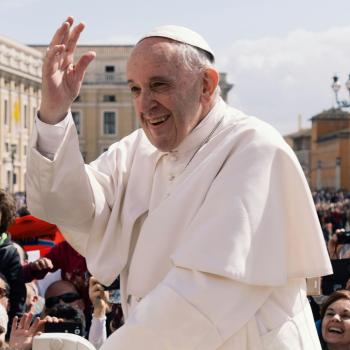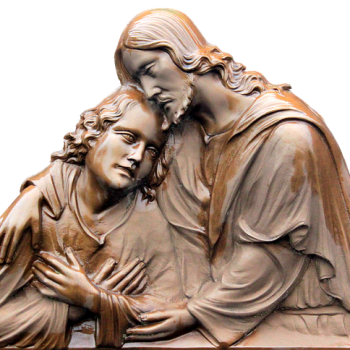Free will was granted to every human because The Creator didn’t desire automatons but a people who would choose to love God freely—or not. After all, you can’t force someone to love you. Love must be freely given, or it is not love at all.
Free will means that humans have the power to make their own choices between good and evil. However, that does not mean that choosing sin is okay just because you have the right to choose it. Adam and Eve found that out in the Garden of Eden.
Since the “First Lesson” was about the appropriate use of free will, you’d think that people would have a solid understanding of the concept. Nonetheless, Speaker Nancy Pelosi has long excused her position on “a woman’s choice” as an exercise in free will.

This convoluted line of reasoning appeared again in an August 3, 2022, interview with Stacey Abrams, a candidate for Governor of Georgia. She said too that a woman’s right to make her own decision about abortion results from the free will that God gave us.
These two prominent women, and all those who eagerly snatch at this excuse to justify the unjustifiable act of abortion, are grossly misinterpreting the purpose of free will. They seem to think that free will means you can determine your own morality.
Logically, legally and theologically, this twisted mentality makes no sense and just shows the contortions people will use in an attempt to assuage their conscience and give themselves permission to sin.
The Bible and St. Augustine on Choices
To repeat: we can choose good or evil but choosing evil does not make it good. If you choose evil, you must accept what you have chosen for what it truly is and for how it will impact other people, like the unborn child.
There is an applicable passage from Deuteronomy (30:19-20):
“This day I call the heavens and the earth as witnesses against you that I have set before you life and death, blessings and curses. Now choose life, so that you and your children may live and that you may love the Lord your God, listen to His voice, and hold fast to Him.”
Could it be clearer? “Now choose life, so that you and your children may live.”
St. Augustine taught that, if we have free will, then we also have a duty to make decisions in alignment with a well-formed conscience, based on truth and God’s law, about what is good and evil. A further duty is to let our conscience rule our life.
What determines whether a particular action is good does not depend on one’s own judgment, on whether “it feels good” or the assumption that it does not hurt anyone.
We should submit to our conscience and be passionately committed to letting it rule our decisions. That’s what’s called living by your convictions. It indicates courage and character.
Archbishop Niederauer on Free Will

In 2010, then Archbishop of San Francisco George H. Niederauer responded to Pelosi’s free will argument with an explanation of what the Catholic Church actually teaches as opposed to what she claims her beliefs have taught her. https://www.catholic.org/news/hf/faith/story.php?id=35186
The archbishop said that Pelosi’s statements showed “some fundamental misconceptions about Catholic teaching. Human freedom does not legitimate bad moral choices, nor does it justify a stance that all moral choices are good if they are free.”
Niederauer continued: “It is entirely incompatible with Catholic teaching to conclude that our freedom of will justifies choices that are radically contrary to the Gospel. Freedom of will is the capacity to act with moral responsibility; it is not the ability to determine arbitrarily what constitutes moral right.”
Echoing St. Augustine, Niederauer explained: “Conscience, then, is the judgment of reason whereby the human person, guided by God’s grace, recognizes the moral quality of a concrete act. In all we say and do, we are obliged to follow faithfully what we know to be just and right.”
Catholic citizens need to follow our consciences and not be swayed by political or social pressures. Respecting the freedom of others does not mean anything goes. That is anarchy.
Archbishop Niederauer made clear that a choice is no longer moral if it strikes at the most fundamental rights of others. Since the right to life is the most fundamental of rights, it “cannot be justified by any Catholic notion of freedom.”
The temptation to grab at any excuse for our bad choices is strong. Our culture condemns “judgment” as offensive and tells people they can do whatever they want and need not feel guilty.
However, if we are to be prepared for God’s judgment, perhaps we need to seriously examine our reasoning for phoniness. Did we choose simply because we could or because it was good?












